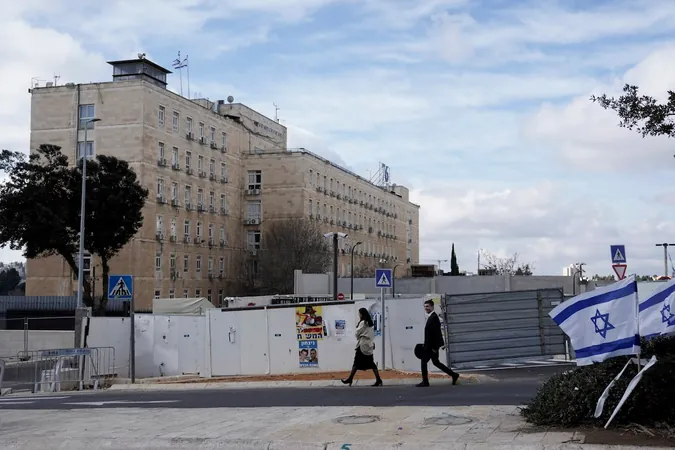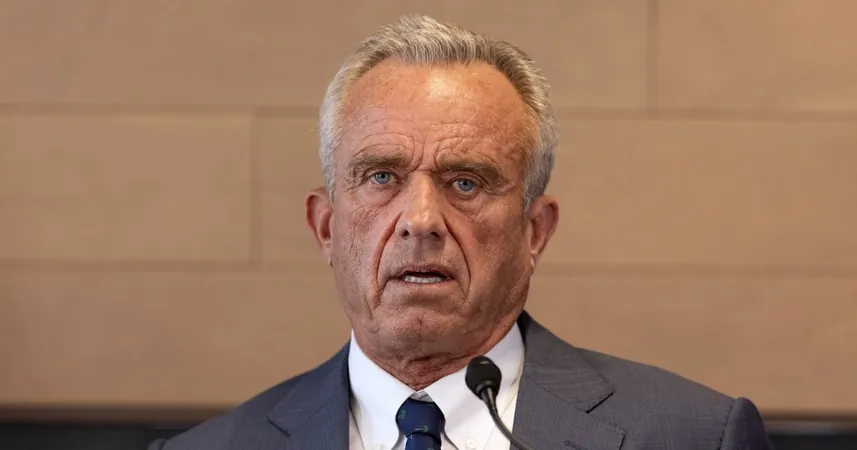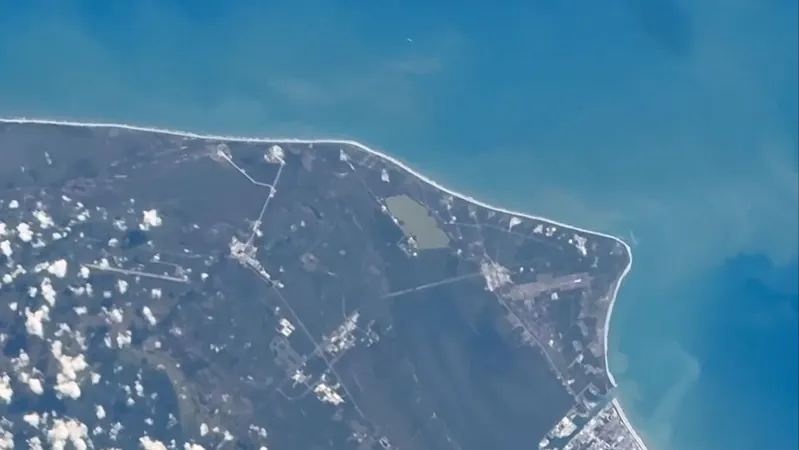
Israel's Security Cabinet Moves Toward Historic Ceasefire Deal With Hamas Amid Controversy
2025-01-17
Author: Jacob
Israel's Security Cabinet Meeting
In a significant development, Israel's security cabinet held a crucial meeting on Friday to vote on a ceasefire agreement aimed at halting the 15-month conflict with Hamas in Gaza. This comes after Prime Minister Benjamin Netanyahu announced an agreement that not only seeks to pause hostilities but also promises the release of dozens of hostages being held by militants.
Background and Negotiations
The groundwork for this ceasefire was laid by mediators from Qatar and the United States, who first announced the deal on Wednesday. However, implementation faced delays as Netanyahu cited last-minute obstacles, squarely placing the blame on Hamas. While the militant group assured that they remained "committed" to the agreement, the situation left many residents in Gaza and families of the hostages anxiously waiting for clarity.
Ceasefire Approval Process
Following the security cabinet's recommendations, the ceasefire deal now requires the final approval of the full cabinet. Observers expect that it will pass despite strong opposition from Netanyahu's far-right coalition allies, which could threaten the stability of his government.
Escalation of Conflict
This conflict escalated dramatically after Hamas launched a cross-border attack on October 7, 2023, resulting in the deaths of approximately 1,200 people in Israel and taking around 250 individuals hostage. In retaliation, Israel's military response has been devastating, with casualties in Gaza soaring to over 46,000, according to local health officials—many of whom are women and children.
Global Reactions and Local Impact
Globally, the conflict has ignited widespread protests and raised alarms about regional stability in the Middle East. Within the last 24 hours alone, Gaza's Health Ministry reported that 88 more bodies had been brought to hospitals, signaling the continuation of violence up to the ceasefire deadline.
Details of the Proposed Deal
The potential deal stipulates the release of 33 hostages out of an estimated 100 still held in Gaza over a span of six weeks, in exchange for hundreds of Palestinian prisoners held in Israeli jails. Furthermore, Israeli forces are expected to withdraw from several areas, enabling hundreds of thousands of Palestinians to return to their homes and facilitating a surge in humanitarian aid.
Uncertain Fate of Remaining Hostages
However, the fate of the remaining hostages, including male soldiers, remains uncertain. Hamas has indicated that the release of these captives will only be feasible with a lasting ceasefire in place and a complete withdrawal of Israeli forces. On the other hand, Israel is committed to continuing its military operations until Hamas is dismantled and its control over the territory is broken.
Egypt's Role in Negotiations
Amidst these negotiations, Egyptian officials have confirmed that last-minute issues over the list of Palestinian prisoners have been resolved, paving the way for the deal to proceed. An Israeli delegation is reportedly in Cairo to discuss reopening the Rafah crossing, a vital connection between Gaza and Egypt.
Political Tensions in Israel
Notably, the political landscape in Israel remains tenuous. Hardline national security minister Itamar Ben-Gvir has threatened to resign if the ceasefire is ratified, raising the stakes for Netanyahu, who faces potential rebellion among his political allies. This critical moment may determine not only the immediate future of the ceasefire but also the trajectory of Netanyahu's government amidst ongoing political challenges.
Conclusion: A Pivotal Moment Ahead
The countdown has begun as both sides brace for a pivotal weekend, with hopes high and tensions still prevalent. Will this ceasefire finally bring the long-suffering people of Gaza and Israel some respite? The world is watching closely.









 Brasil (PT)
Brasil (PT)
 Canada (EN)
Canada (EN)
 Chile (ES)
Chile (ES)
 Česko (CS)
Česko (CS)
 대한민국 (KO)
대한민국 (KO)
 España (ES)
España (ES)
 France (FR)
France (FR)
 Hong Kong (EN)
Hong Kong (EN)
 Italia (IT)
Italia (IT)
 日本 (JA)
日本 (JA)
 Magyarország (HU)
Magyarország (HU)
 Norge (NO)
Norge (NO)
 Polska (PL)
Polska (PL)
 Schweiz (DE)
Schweiz (DE)
 Singapore (EN)
Singapore (EN)
 Sverige (SV)
Sverige (SV)
 Suomi (FI)
Suomi (FI)
 Türkiye (TR)
Türkiye (TR)
 الإمارات العربية المتحدة (AR)
الإمارات العربية المتحدة (AR)